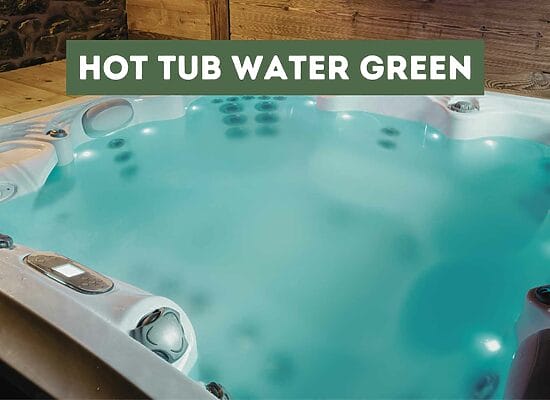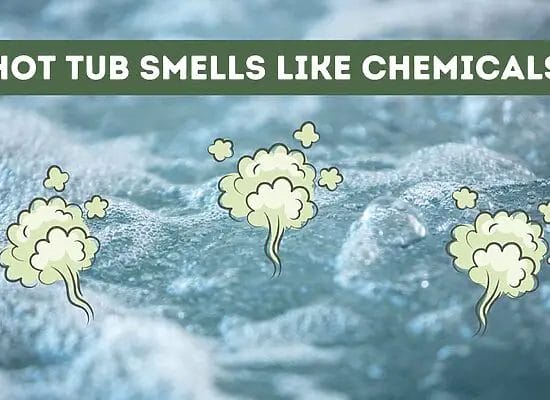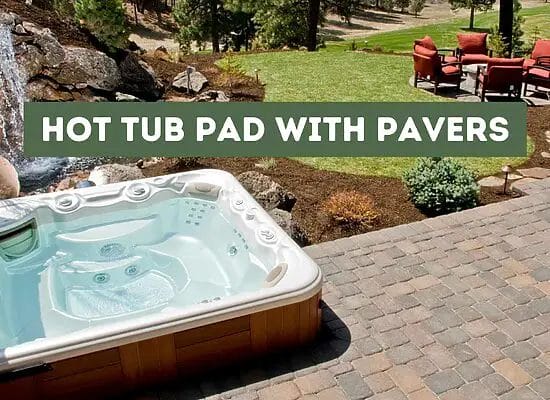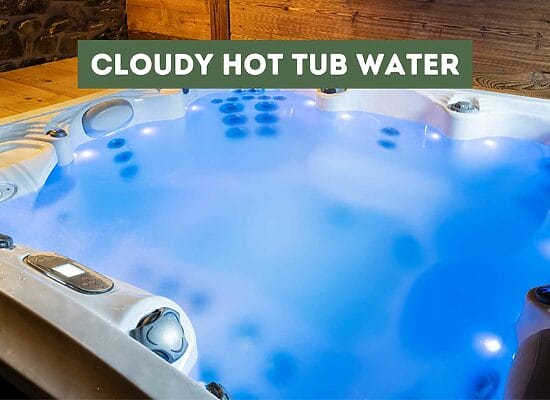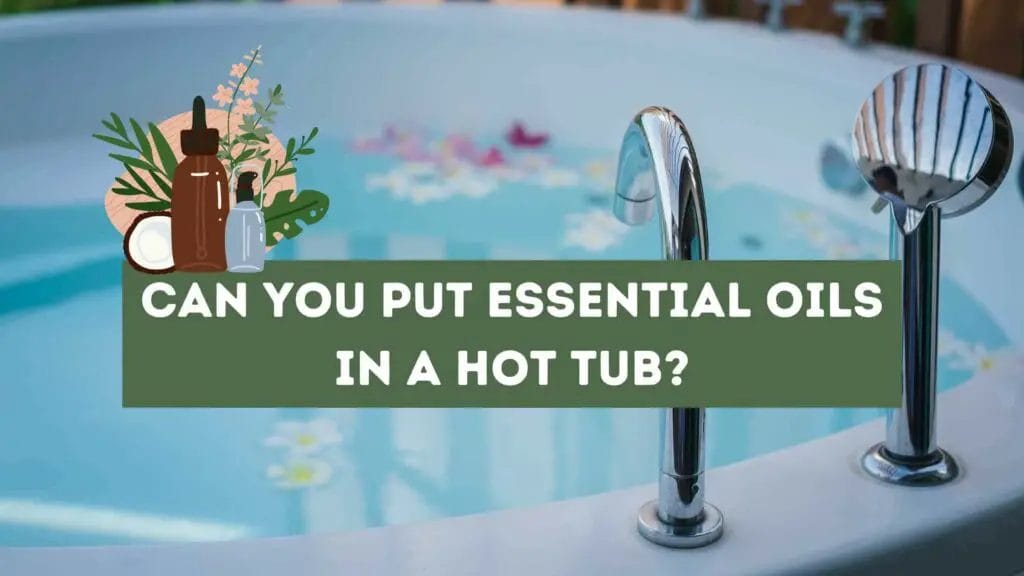
Are you looking to add some aromatherapy to your hot tub experience? You may be wondering if it’s safe to put essential oils in your hot tub. While essential oils can provide a relaxing and soothing atmosphere, it’s important to consider the potential risks.
Most essential oils are not designed for use in hot tubs. They are not water-soluble and can cause issues with the filtration system, leading to excess foam in the water and potentially clogging the plumbing. Additionally, not all essential oils are safe for direct contact with your skin. Homemade hot tub aromatherapy is never a wise choice. It’s important to choose an aromatherapy method that’s free from potential negative side effects.
So, can you put essential oils in a hot tub? The short answer is no. However, there are alternative methods to enjoy the benefits of aromatherapy in your hot tub. Below we’ll explore the potential risks of using essential oils in your hot tub and provide safe and effective alternatives to enhance your hot tub experience.
Key takeaways:
- Essential oils should not be directly added to hot tubs due to their potential to clog filters and plumbing and cause excess foam.
- Most essential oils are not water-soluble and can create issues in hot tubs, so using them directly is not recommended.
- Homemade hot tub aromatherapy using essential oils is discouraged due to potential negative side effects.
- Essential oils are highly concentrated plant extracts used for aromatherapy, massage, and skincare.
- Safe essential oils for hot tubs include lavender, eucalyptus, citrus, tea tree, rosemary, and lemongrass.
- Essential oils offer benefits such as relaxation, pain relief, improved sleep, and mental clarity when used in hot tubs.
- To use essential oils in a hot tub safely, dilute them with carrier oils, use water-soluble essential oils, and consider alternatives like spa-friendly aromatherapy products or crystals.
Understanding Essential Oils
Essential oils are highly concentrated plant extracts that are used for a variety of purposes, including aromatherapy, massage, and skincare. These oils are extracted from different parts of plants, such as leaves, flowers, roots, and bark, and contain the natural fragrance and essence of the plant.
The chemistry behind essential oils is complex, and each oil has a unique chemical composition that determines its therapeutic properties. For example, lavender oil is known for its calming and relaxing properties, while peppermint oil is known for its invigorating and energizing effects.
When it comes to using essential oils in a hot tub, it is important to understand that not all oils are safe for use in water. Some oils are not water-soluble and can gum up the filters, lead to excess foam in the water, and potentially create clogs in the plumbing.
It is also important to note that essential oils are highly concentrated and can cause skin irritation or sensitization if applied directly. It is recommended to dilute the oils properly before adding them to the hot tub.
Some popular essential oils that are safe to use in a hot tub include lavender, eucalyptus, citrus, tea tree, rosemary, and lemongrass. These oils can be added to the water or used in a diffuser to create a relaxing and therapeutic atmosphere.
When using essential oils in a hot tub, it is important to choose high-quality oils that are specifically designed for use in water. These oils are formulated to be water-soluble and safe for use in hot tubs.
Benefits of Essential Oils in Hot Tubs
Using essential oils in your hot tub can provide a range of benefits for both your body and mind. Here are some of the key benefits of using essential oils in hot tubs:
Relaxation and Stress Relief
One of the most significant benefits of using essential oils in your hot tub is the relaxation and stress relief they can provide. Essential oils such as lavender, ylang-ylang, and chamomile have calming properties that can help reduce tension, anxiety, and stress. By adding a few drops of these oils to your hot tub, you can create a soothing and relaxing atmosphere that helps you unwind and de-stress.
Pain and Inflammation Relief
Essential oils can also provide relief from muscle tension, soreness, and inflammation. Oils such as peppermint, eucalyptus, and rosemary have natural analgesic and anti-inflammatory properties that can help ease pain and reduce inflammation. If you suffer from muscle aches or joint pain, adding these oils to your hot tub can provide soothing relief.
Improved Sleep
Certain essential oils can also help improve your sleep quality. Oils such as lavender, chamomile, and valerian root have sedative properties that can help you relax and fall asleep more easily. By adding a few drops of these oils to your hot tub before bedtime, you can create a calming and restful environment that promotes better sleep.
Mental Clarity and Energy Boost
Essential oils can also help improve mental clarity and boost energy levels. Oils such as peppermint, lemon, and grapefruit have invigorating properties that can help increase focus and concentration. By adding these oils to your hot tub, you can create an energizing and refreshing environment that helps you stay alert and focused throughout the day.
How to Add Essential Oils to Your Hot Tub
Adding essential oils to your hot tub can enhance your spa experience and provide numerous benefits, such as relaxation, stress relief, and improved skin health. However, it is crucial to use them correctly to avoid damaging your hot tub components or irritating your skin.
Here are some steps to follow when adding essential oils to your hot tub:
- Choose the Right Essential Oils: Not all essential oils are safe to use in hot tubs. Some oils can damage the hot tub’s components or cause skin irritation. Therefore, it is essential to choose oils that are safe for hot tub use. Some popular options include lavender, eucalyptus, peppermint, and citrus oils.
- Dilute the Essential Oils: Essential oils are highly concentrated, and using them directly in your hot tub can be too strong and cause skin irritation. It is recommended to dilute them with a carrier oil before adding them to your hot tub. Carrier oils like coconut oil, jojoba oil, apricot kernel oil, and sweet almond oil are excellent options for diluting essential oils.
- Use a Water-Soluble Essential Oil: Water-soluble essential oils are specially formulated to dissolve in water and are safe to use in hot tubs. They are easier to dilute and distribute evenly in the water. Make sure to read the label and choose a water-soluble essential oil for your hot tub.
- Use a Diffuser: Using a diffuser can help distribute the essential oils evenly in the water and prevent them from settling on the hot tub’s surface. It can also help prevent the oils from clogging the hot tub’s filters and jets.
- Add the Essential Oils to Your Hot Tub: Once you have diluted the essential oils and chosen a water-soluble option, it’s time to add them to your hot tub. Start by adding a small amount of the diluted oil to the water and test it before adding more. You can add more drops as needed to achieve the desired scent and effect.
Safety Precautions and Considerations
When using essential oils in your hot tub, it is essential to take safety precautions and consider certain factors to avoid skin irritation, clogging of jets, and other safety hazards. Here are some tips to help you use essential oils safely in your hot tub:
- Use only high-quality essential oils that are specifically labeled safe for use in hot tubs. Avoid using synthetic oils or oils not intended for use in hot tubs.
- Always dilute the essential oils before adding them to your hot tub. Add a few drops of the oil to a carrier oil such as coconut oil or almond oil before adding it to the water.
- Do not add essential oils directly to the water. Just place them in the water by the jets and whirlpool, then guide the jet spray and swirling water to the area of your body that needs attention.
- Test the essential oils on a small patch of skin before using them in your hot tub. This will help you avoid any allergic reactions or skin irritations.
- Do not use essential oils in excess. A few drops are enough to add fragrance and therapeutic properties to your hot tub water.
- Consider the water chemistry and quality of your hot tub before adding essential oils. Make sure the pH level, alkalinity, and sanitizer levels are balanced and within the recommended range.
- Clean your hot tub regularly and thoroughly to avoid clogging of jets and plumbing. Essential oils can gum up the filters and create excess hot tub foam if not properly maintained.
Maintaining Hot Tub After Essential Oil Use
After using essential oils in your hot tub, it is important to properly maintain it to ensure its longevity and functionality. Here are some tips to help you maintain your hot tub after using essential oils:
Regular Cleaning
Regular cleaning is essential to keep your hot tub free from any oils and residues that may have accumulated after use. Use a non-abrasive cleaner and a soft cloth to wipe down the surfaces of your hot tub. Avoid using harsh chemicals or abrasive materials that can damage the hot tub’s surface.
Filtration System
The filtration system of your hot tub is responsible for removing any debris and contaminants from the water. Essential oils can clog the filters and reduce their effectiveness. It is important to clean and replace the filters regularly, as per the manufacturer’s instructions, to ensure that they are working properly.
Hot Tub Chemicals
Using hot tub chemicals is essential to maintain the water quality and prevent the growth of bacteria and algae. However, after using essential oils, it is important to monitor the chemical levels and adjust them accordingly. Essential oils can affect the pH levels of the water, so it is important to test the water frequently and add chemicals as necessary.
Chemical Treatments
In addition to regular hot tub chemicals, you can also use chemical treatments specifically designed for essential oil use. These treatments can help break down any oils that may have accumulated in the water or on the hot tub’s surface. Follow the manufacturer’s instructions carefully and use these treatments as necessary.
Manufacturer’s Instructions
Finally, it is important to follow the manufacturer’s instructions for your specific hot tub model. Different hot tubs may have different maintenance requirements, so it is important to consult the manual and follow the recommended maintenance schedule. This will help ensure that your hot tub stays in good condition and lasts for years to come.
Alternative Aromatherapy Options for Hot Tubs
If you’re looking for an alternative to essential oils in your hot tub, there are several options that can help you achieve a similar aromatherapy experience. Here are some alternatives to consider:
Spa-Friendly Aromatherapy Products
Many hot tub dealers offer spa-friendly aromatherapy products that are designed specifically for use in hot tubs. These products are typically non-oil-based and won’t damage your hot tub’s plumbing or filtration system. Some popular options include MPScents® non-chlorine oxidizer plus aromatherapy and inSPAration® spa fragrances.
Aromatherapy Crystals
Aromatherapy crystals are another alternative to essential oils in hot tubs. These crystals are designed to dissolve in hot water and release a pleasant scent. They’re typically made with natural ingredients and won’t damage your hot tub’s plumbing or filtration system. Some popular options include Spazazz® aromatherapy crystals and InSPAration® aromatherapy crystals.
Epsom Salt
Epsom salt is a popular ingredient in many bath and body products, including bath bombs and bath salts. It can also be used in hot tubs to provide a relaxing and therapeutic experience. Epsom salt is a natural source of magnesium, which can help to soothe sore muscles and promote relaxation. Be sure to use food-grade Epsom salt in your hot tub, and avoid using scented or colored varieties.
Carrier Oils
If you’re set on using essential oils in your hot tub, you can dilute them with a carrier oil to make them safe for use. Carrier oils are typically vegetable-based oils that are used to dilute essential oils and make them safe for use on the skin. Some popular carrier oils include coconut oil, jojoba oil, and sweet almond oil. Be sure to dilute your essential oils properly and avoid using too much, as this can damage your hot tub’s plumbing or filtration system.
Bath Bombs and Bath Salts
Bath bombs and bath salts are another alternative to essential oils in hot tubs. These products are typically made with natural ingredients and can provide a relaxing and therapeutic experience. Be sure to choose products that are specifically designed for use in hot tubs, and avoid using products that contain oils or other ingredients that can damage your hot tub’s plumbing or filtration system.
Choosing the Right Essential Oils
When it comes to choosing the right essential oils for your hot tub, there are a few things to keep in mind. First, you want to make sure that you choose oils that have a pleasant smell and are refreshing to you. After all, the whole point of using essential oils in your hot tub is to enhance your experience and create a relaxing atmosphere.
It’s also important to choose reputable brands when selecting essential oils for your hot tub. This ensures that you are getting high-quality oils that are safe to use in your hot tub. Look for brands that have a good reputation and have been around for a while.
When it comes to the types of essential oils you can use in your hot tub, there are many options available. Some popular choices include lavender, peppermint, eucalyptus, and tea tree oil. Each of these oils has its own unique healing properties, such as antibacterial and anti-inflammatory effects.
It’s important to note that not all essential oils are safe to use in hot tubs. Some oils, such as citrus oils, can be too harsh and can cause skin irritation. Always do your research and make sure that the oils you choose are safe for use in hot tubs.
When using essential oils in your hot tub, it’s important to dilute them properly. Essential oils are highly concentrated and can cause skin irritation or sensitization if applied directly. To dilute your oils, mix a few drops of the essential oil with a carrier oil, such as coconut or almond oil, before adding them to your hot tub.
Inhalation is another way to enjoy the benefits of essential oils in your hot tub. Simply add a few drops of your chosen oil to a diffuser and place it near your hot tub. This allows you to breathe in the aroma of the oils while you soak.
Potential Issues and How to Avoid Them
When using essential oils in your hot tub, there are some potential issues that you should be aware of. However, with proper precautions, you can avoid these issues and safely enjoy the benefits of aromatherapy in your hot tub.
One potential issue is skin irritation. Some essential oils can cause skin irritation or allergic reactions in some people. To avoid this, it’s important to test the oils on a small patch of skin before using them in your hot tub. If you experience any redness, itching, or other signs of irritation, discontinue use immediately.
Another issue to consider is the water temperature. Essential oils can evaporate more quickly in hot water, which can cause the scent to be stronger than intended and potentially irritating to your respiratory system. To avoid this, it’s important to use only a small amount of oil and to monitor the scent carefully.
Debris and insects can also be an issue when using essential oils in your hot tub. Oils can attract insects and debris, which can clog your filters and affect the water quality. To avoid this, it’s important to use a high-quality filter and to clean it regularly.
Finally, respiratory issues can also be a concern when using essential oils in your hot tub. Some oils can cause respiratory irritation or trigger asthma symptoms in some people. To avoid this, it’s important to use only a small amount of oil and to monitor the scent carefully. If you experience any respiratory symptoms, discontinue use immediately.
FAQ: Can You Put Essential Oils in a Hot Tub?
Can essential oils be used in a hot tub?
Yes, essential oils can be used in a hot tub. However, it is important to use caution when adding essential oils to your hot tub, as they can be quite potent and may cause skin irritation or other adverse reactions if not used properly.
How do I safely use essential oils in my hot tub?
To safely use essential oils in your hot tub, it is important to start with a high-quality, pure essential oil. Avoid using cheap alternatives that contain carrier oils, as these can clog your filters and cause damage to your hot tub.
When adding essential oils to your hot tub, start with just a few drops and gradually increase the amount as needed. Be sure to mix the oil thoroughly into the water, and avoid adding too much at once.
What are the best essential oils to use in a hot tub?
The best essential oils to use in a hot tub will depend on your personal preferences and needs. Some popular choices include lavender for relaxation, eucalyptus for respiratory support, and peppermint for a refreshing and invigorating experience.
Is it safe to use menthol crystals in a hot tub?
While menthol crystals can be a great addition to your hot tub experience, it is important to use them with caution. Start with just a small amount and gradually increase as needed, and be sure to mix the crystals thoroughly into the water to avoid irritation or discomfort.
What is the best way to add aromatherapy to a hot tub?
The best way to add aromatherapy to your hot tub is to use a high-quality essential oil or aromatherapy product designed specifically for use in hot tubs. Be sure to follow the instructions carefully and start with a small amount, gradually increasing as needed.
Can spa crystals be used in a hot tub?
Yes, spa crystals can be used in a hot tub. However, it is important to choose a product that is specifically designed for use in hot tubs, as some products may contain ingredients that can cause damage to your hot tub or clog your filters. Follow the instructions carefully and start with a small amount, gradually increasing as needed.






